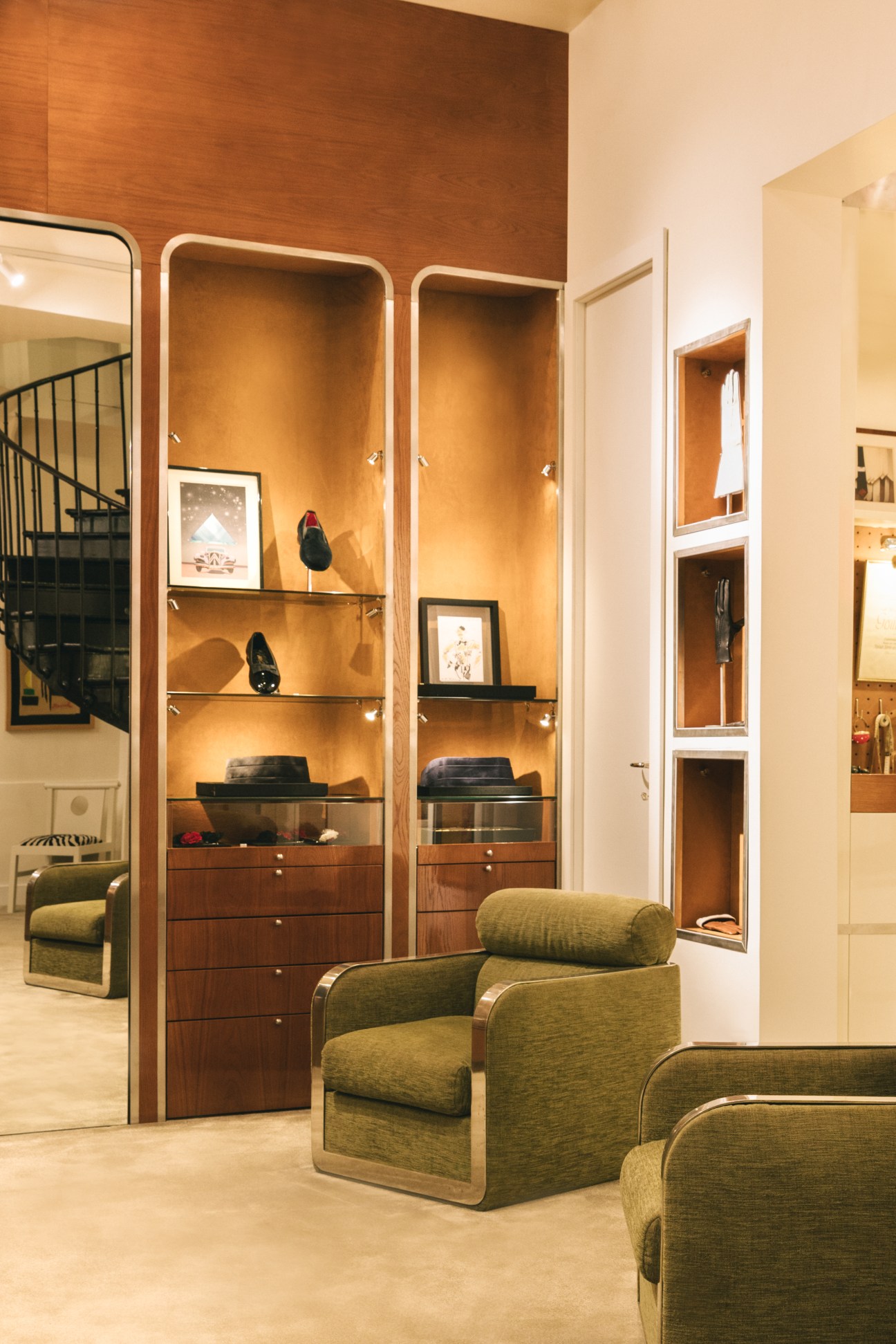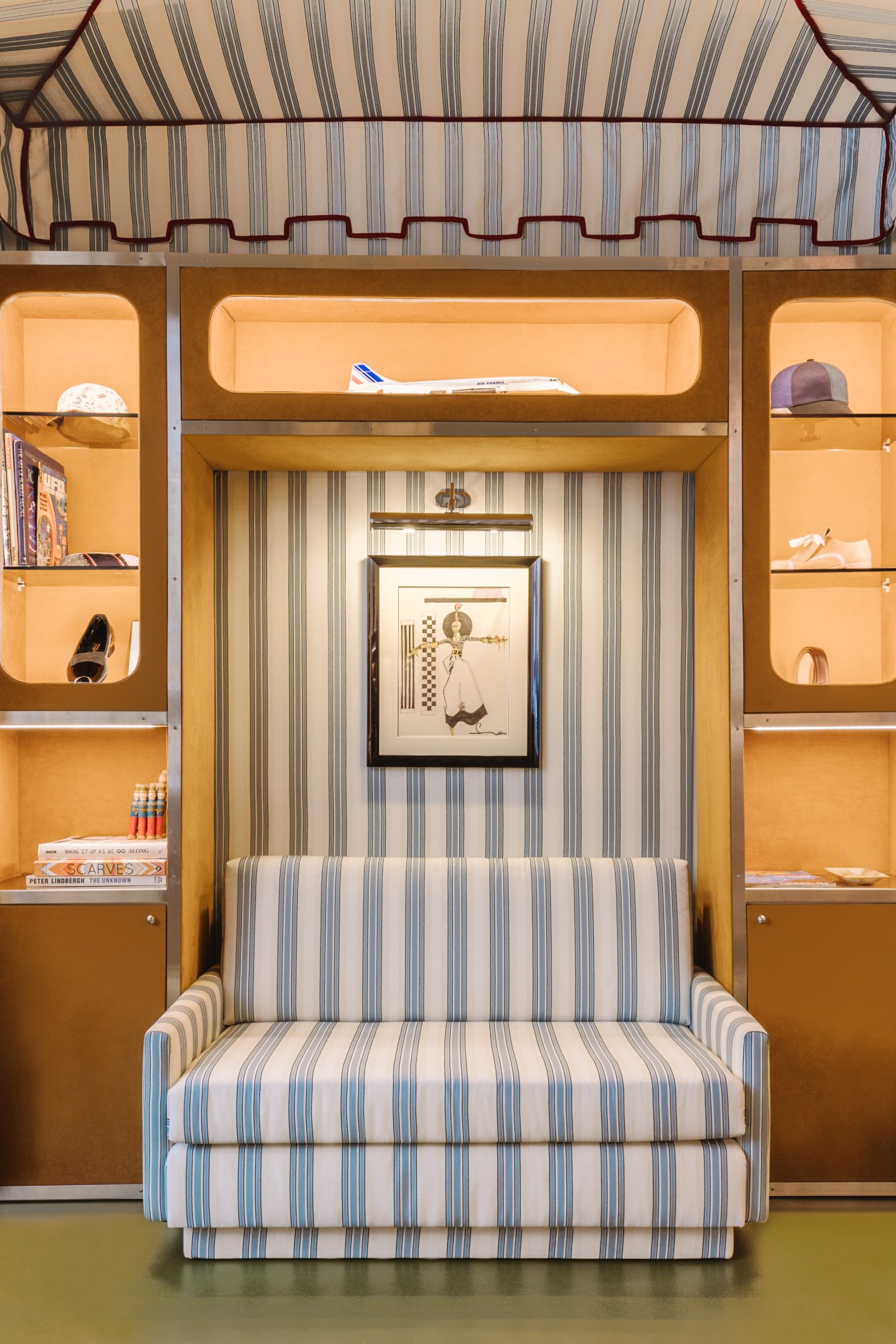Tour accessories label Cinabre’s Paris guest apartments
Alexandre Chapellier’s irreverent takes on men’s accessories have caught the eye of France’s most influential denizens. Chapellier‘s label is aiming still higher, opening new guest apartments above its shop.

In Paris’s Cité Bergère, a small and thoroughly charming pocket of the 9th arrondissement, is French brand Cinabre’s treasure trove of handmade silk ties, lapel pins, slippers and dressing gowns, showcased among vintage cocktail shakers, vinyl records, antique furniture and framed drawings. In the entrance is a marquee with blue and white stripes, and bright-red piping, which gives way to a reception area, complete with a concierge’s desk. At the back, a honey-hued, wood-panelled space houses drawers that are brimming with silk “Made in France” wonders. Look closer and you might see an embroidered image of French former footballer Zinedine Zidane on a tie.
Cinabre is opulent and a little irreverent, excessive without being overwhelming. It’s high and low. “If you’re a purveyor of bow ties and dressing gowns in the 21st century, you can’t take yourself too seriously,” Alexandre Chapellier, the French-Swedish founder of Cinabre, tells MONOCLE. “I like to modernise what are considered more serious, traditional accessories – and do it with panache.”




What began in 2011 as a passion project soon gained traction when one of the label’s first clients, Karl Lagerfeld, picked out Cinabre items at the now-shuttered multi-brand shop Colette. The label gained more visibility when it was added to the rails of Parisian department stores Le Bon Marché, Neiman Marcus in the US and Isetan in Japan. US musician and producer Pharrell Williams, who is currently the creative director of Louis Vuitton menswear, was then photographed wearing a textile Cinabre boutonniere fastened to his suit’s lapel.
Then the label reached another milestone: in 2016 it was given the opportunity to provide a young politician called Emmanuel Macron with a tie. After winning the presidential election the following year, Macron chose Cinabre as his official purveyor of silk ties. “I thought that it was a friend of mine pranking me when I got that call,” says Chapellier. “For a small, ‘Made in France’ artisanal brand such as mine, it’s the equivalent of a presidential warrant. We went to the Élysée Palace to present our products and since then we have worked with ministers and the French delegation to the UN.” Today the president’s bailiffs, or huissiers, can be seen in the background of the Élysée sporting Cinabre bow ties handmade from Swiss cotton.
“For our small atelier in the Loir-et-Cher department, two hours outside Paris in the French countryside, it’s a huge source of pride,” says Chapellier. “We have third-generation artisans passing down their savoir-faire and the craft of making a tie, which is an extremely technical skill.” Every tie is hand-cut and made using the highest-quality Italian fabric. “We want to bring back a sense of generosity in our products. What’s nice about working with old-school accessories such as bow ties is that people are often purchasing them for an occasion, such as a black-tie wedding or birthday. We’re specialists in items that are no longer obligatory. It’s a choice to wear a bow tie today.”






Last November, Chapellier opened Les Suites Cinabre: two guest apartments above the shop. The brand worked with Paris-based firm Necchi Architecture to create rooms that are a natural extension of the Cinabre brand, with plenty of character, colour and charm. There, visitors are offered the opportunity to embrace the lifestyle of a Cinabre gentleman, complete with velvet-lined slippers. “We wanted to shake up the straightforward retail model,” says Chapellier. “Today a shop needs to offer more than just a product. We wanted to go a level above.” In the coming months, the company will launch a range of perfumes candles, as well as a foray into ready-to-wear with a line of shirts, jackets and trousers. If it’s fit for a president…
cinabre-paris.com


